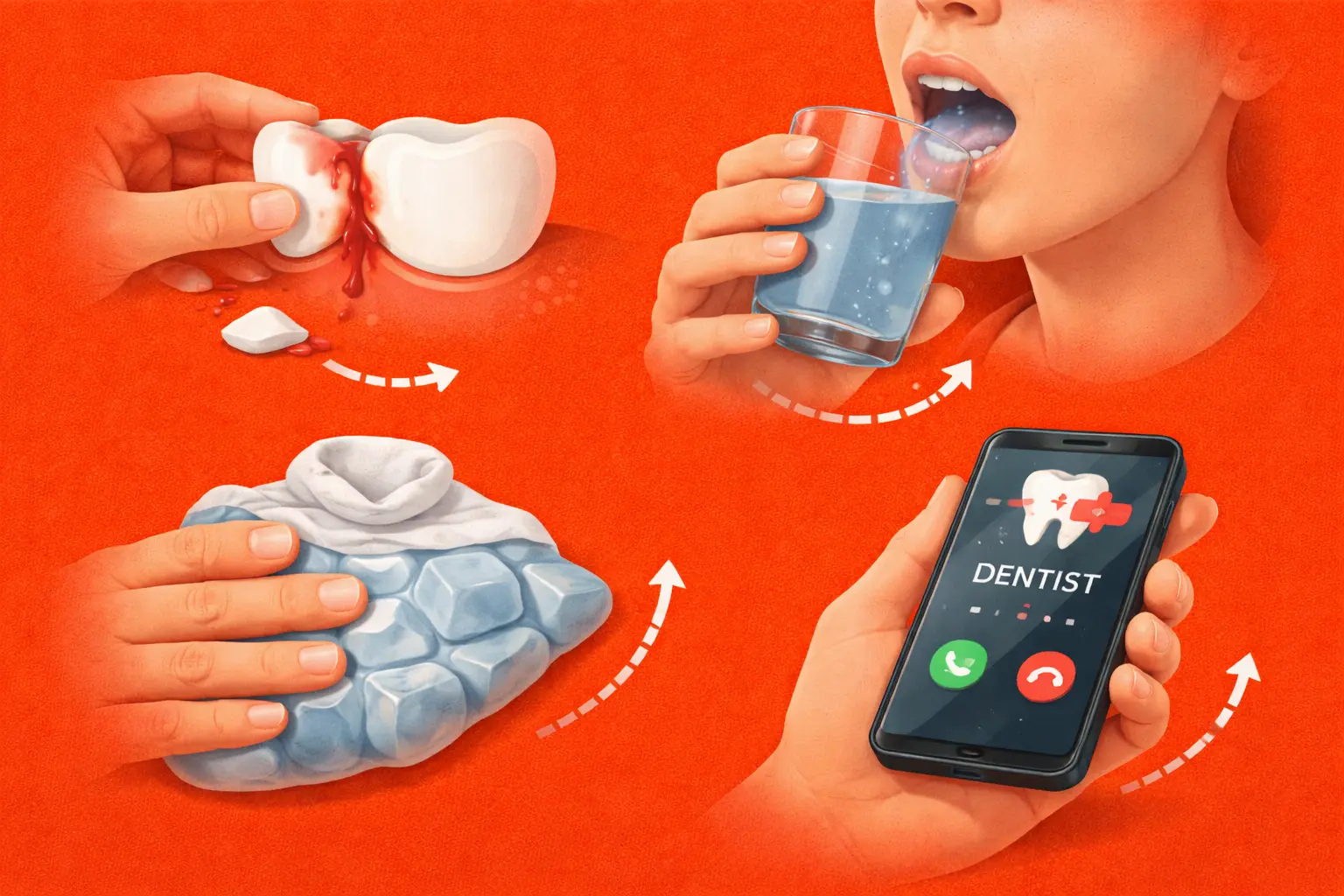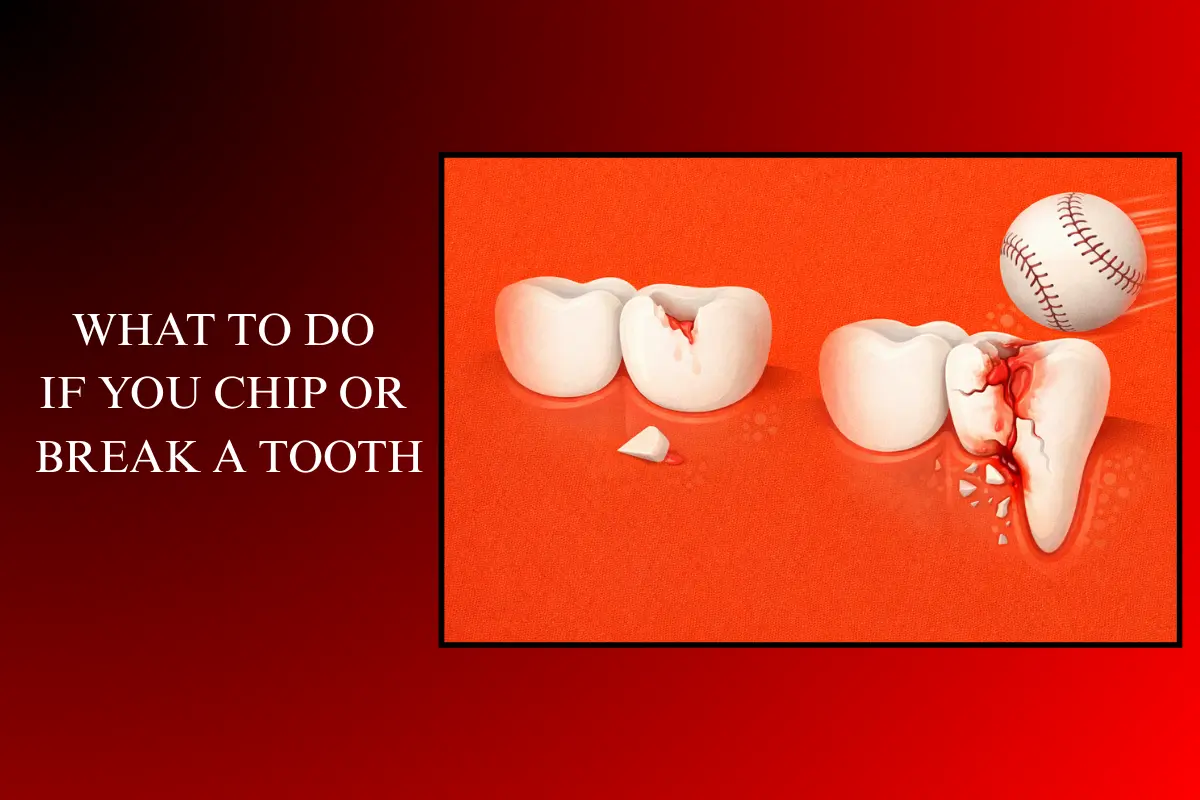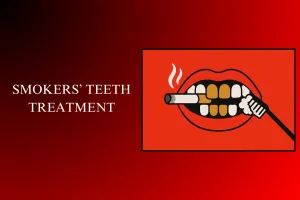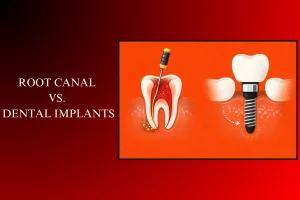A chipped or broken tooth can be alarming, whether it happens due to an accident, biting on something hard, or underlying dental issues. While some cases are minor and manageable, others require immediate dental attention. Knowing what steps to take can help prevent further damage and ease discomfort.
This guide provides essential information on how to handle a chipped or broken tooth, including immediate steps, treatment options, and preventive measures.
Short Summary
- Chipped or broken teeth can result from accidents, biting hard objects, or underlying dental issues and may require urgent attention.
- Immediate steps include rinsing with warm water, controlling bleeding, saving broken pieces, using a cold compress, and avoiding hard foods.
- Seek dental care if there is pain, sensitivity, swelling, infection, or large portions of the tooth are missing.
- Treatment options range from bonding or polishing for minor chips to fillings, crowns, root canals, or extractions for severe damage.
- Prevention involves avoiding hard foods, wearing mouthguards during sports, maintaining oral hygiene, and regular dental checkups.
Immediate Steps to Take If You Chip or Break a Tooth

If you chip or break a tooth, follow these steps to protect the tooth and prevent further complications:
- Rinse your mouth with warm water to clean the area.
- Check the severity – If it’s a slightly chipped tooth, it may not require urgent care, but a broken tooth often does.
- Control any bleeding by gently applying gauze or a clean cloth.
- Reduce swelling and pain using a cold compress on the affected area.
- Save any broken pieces of the tooth and keep them in milk or saline solution if possible.
- Avoid eating hard or sticky foods until you see a dentist.
- Visit a dentist as soon as possible, especially if you feel pain or sensitivity. If you need urgent care, consider a dental emergency service.
For professional assistance, you can visit Night and Day Emergency Dentist, which offers expert dental care for urgent situations.
When to See a Dentist?
You should seek dental care immediately if:
- The tooth is painful, sensitive, or bleeding excessively.
- A large piece of the tooth is broken, exposing the nerve or pulp.
- There is swelling, signs of infection, or difficulty eating.
- The tooth is loose or has sharp edges that could cause further injury.
Treatment Options for a Chipped or Broken Tooth
The treatment for a chipped or broken tooth depends on the severity of the damage. Here are common solutions:
For a Slightly Chipped Tooth:
- Dental Bonding: A tooth-colored resin is applied to restore the tooth’s shape.
- Polishing: Minor chips may be smoothed out by a dentist.
For a Cracked or Broken Tooth:
- Dental Filling or Crown: If a significant portion of the tooth is missing, a filling or crown may be needed.
- Root Canal Therapy: If the crack reaches the pulp, a root canal might be necessary to prevent infection.
- Tooth Extraction: In severe cases where the tooth cannot be saved, extraction may be the only option.
How to Fix a Cracked Tooth Naturally?
While natural remedies cannot completely repair a cracked tooth, they may help manage symptoms until professional treatment:
- Rinse with salt water to reduce bacteria and prevent infection.
- Apply clove oil for its natural pain-relieving and antibacterial properties.
- Avoid chewing on the affected side to prevent further damage.
- Use a dental wax or temporary filling to cover sharp edges until you see a dentist.
According to the Oral Health Foundation, between 13% and 39% of all dental injuries in the UK are linked to accidents during sport, accounting for approximately 25% of children injuring or losing front teeth.
How Can You Prevent Tooth Damage in the Future?
To avoid chipping or breaking a tooth in the future, consider these preventive measures:
- Avoid chewing on hard objects like ice, pens, or unpopped popcorn kernels.
- Wear a mouthguard if you play contact sports.
- Maintain good oral hygiene to keep your teeth strong and healthy.
- Visit your dentist regularly to catch potential dental issues early.
FAQs: What to Do If You Chip or Break a Tooth?
Conclusion
A chipped or broken tooth should not be ignored, as even minor damage can lead to bigger problems if left untreated. Taking immediate steps, understanding treatment options, and following preventive measures can help protect your dental health.
If you experience a chipped or broken tooth, seek professional care from a trusted provider like Night and Day Emergency Dentist for the best possible outcome.




